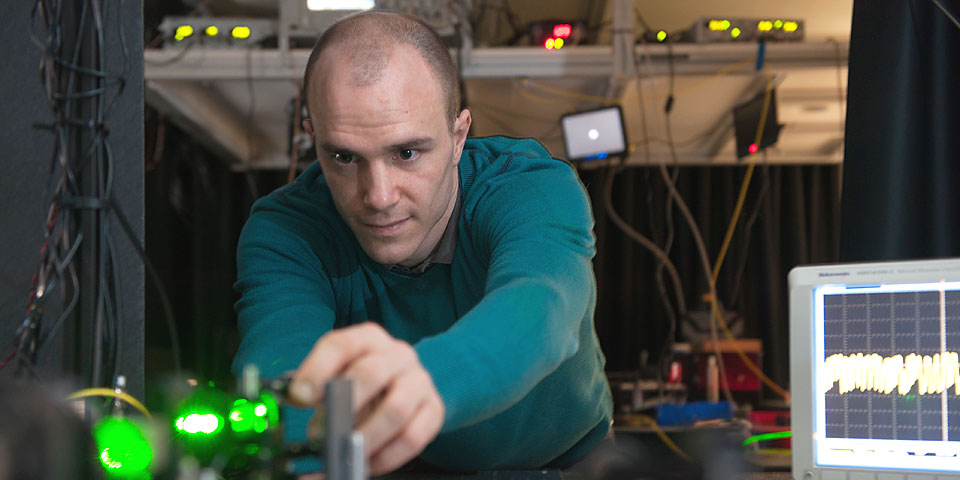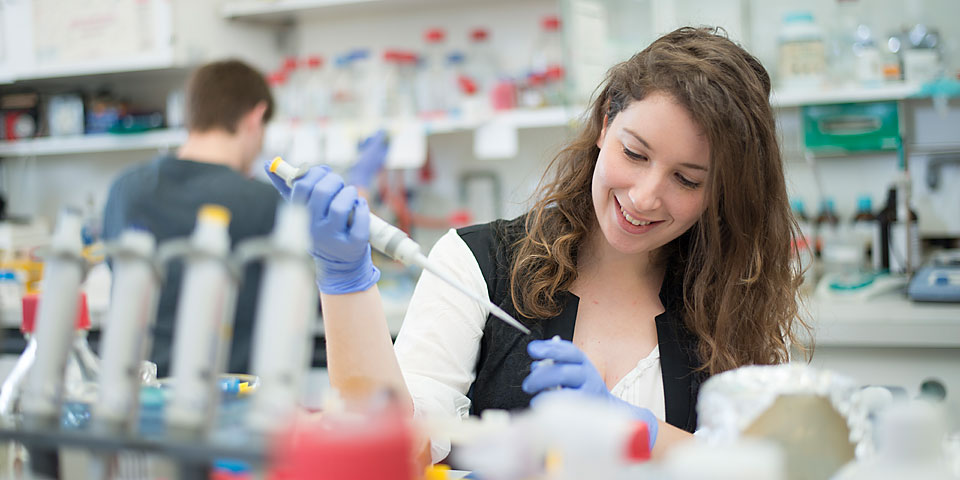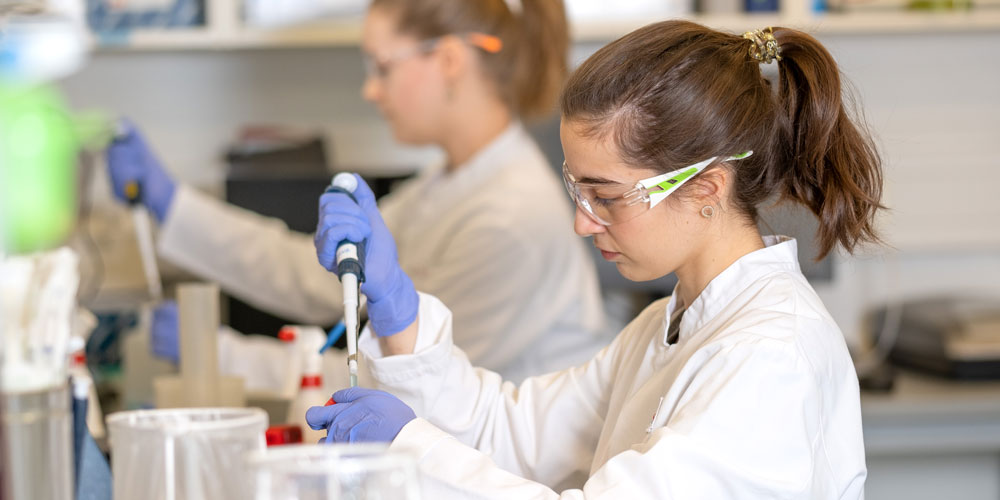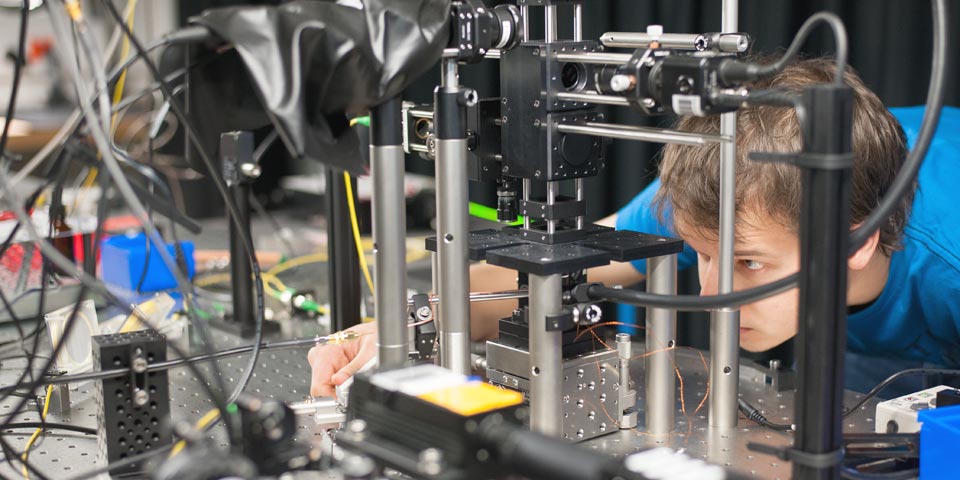Nanosciences Degree: Master
This interdisciplinary sciences degree program focuses on structures on the nanometer scale (1 nm = 1 billionth of a meter).

Overview
- Type
- Course of studies
- Degree
- Master
- Start of program
- Fall and spring semester
- Structure
- 1 course of studies with subject
- Duration of study
- 3 Semester
- Credits
- 90
- Language
- English
- Responsible faculty
- Philosophisch-Naturwissenschaftliche Fakultät
Requirements
Information on admission requirements:
Study program
Information on admission:
www.unibas.ch/admission
Study program
Information on admission:
www.unibas.ch/admission
Dates & Deadlines
Nanoscience researchers concentrate on the manufacture, characterization and manipulation of individual atoms and molecules as well as on the properties of nanometer structures and processes. New, special properties based on surface, quantum and self-organization effects are becoming increasingly important to various aspects of everyday life – information technology, energy, health and communication. Nanoscience is the interplay of various, specialist scientific fields. This is what makes it so exceptional and promising.



